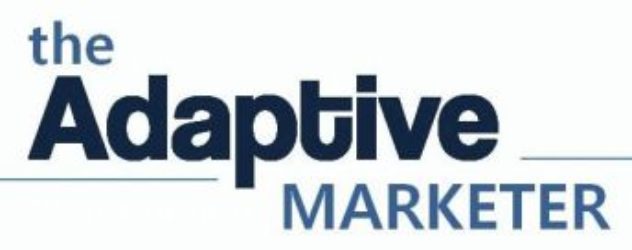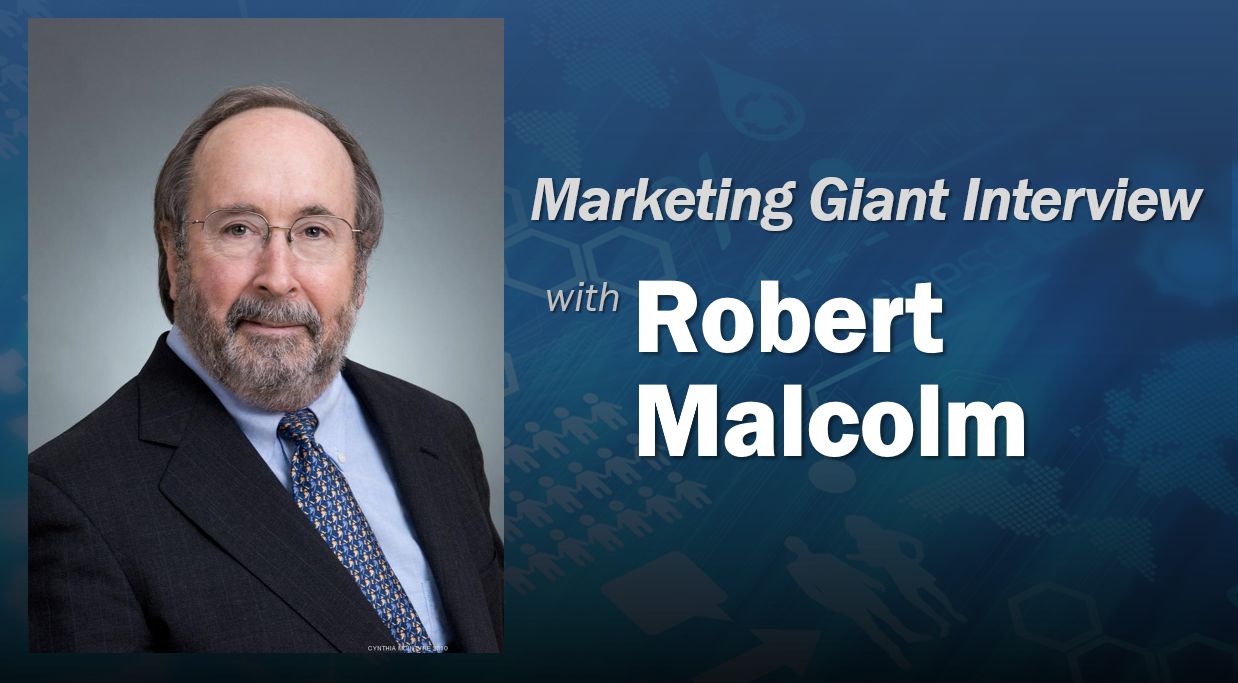This Marketing Expert Interview is with a true giant of Marketing, Rob Malcolm.
He is currently the Executive in Residence at the Center for Consumer Insight and Marketing Solutions at the McCombs Business School at the University of Texas. He has been a lecturer at the Wharton Business School, Chairman for the American Marketing Association, CMO at Diageo, and spent over 20 years at P&G.
1. What company is an example of good marketing today? Who do you admire?
Two immediately come to mind – Frito Lay and Wendys. Frito has consistently outperformed based on very sound portfolio differentiation, strong unique brand propositions and timely marketing that keep these impulse brands top of mind through culturally relevant marketing. I love Wendy’s “challenger” marketing approach that is leveraging its unique product difference in very clever comparative marketing.
2. Did you have a mentor or a person you learnt the most from? What was a key lesson?
I was fortunate to have a couple of early mentors at Procter and Gamble that taught me the fundamentals of marketing – one in particular who was a master of brand strategy. I was fortunate to participate in the Folgers transformation behind the “Wakin’ Up” campaign working for one of these mentors. I have also had “exemplars” from the advertising business – David Ogilvy and Bill Bernbach – who’s teaching about advertising is still very relevant today.
3. What story of a successful marketing strategy could you share?
The best example is Johnnie Walker. In 1999 this was a sick brand in a category, scotch whisky, that had declined for 25 straight years. It had simply lost relevance to a generation of drinkers – the average user age was over 50 – and was at risk in fading into the sunset. Deciding to reintroduce the brand to a younger generation of consumers – 25 year old upwardly mobile males – it was repositioned against a very topical and relevant insight – that younger men were at the start of their life journey and desired to make progress in their lives. The resulting global campaign – ‘Keep Walking’ – appealed to this younger generation of drinkers and, when combined with modernized mentoring and sampling programs, reignited growth in the brand that has lasted more than a decade. In 2008, the Keep Walking campaign was awarded the most effective global marketing campaign of the decade.
[I love this example because it is not about a campaign that won an award or two, it produced real, lasting results – 04% growth to $4.56 billion in revenue worldwide (according to this article). Today, Johnnie Walker is the leading whiskey brand in the World. ]
4. What is your marketing superpower, the most important skill that makes you a great marketer?
I believe in and practice true consumer driven strategy. Determining the most valuable target for your brand, finding the most powerful insight into their motivation, and building a focused marketing strategy that addresses that motivation. Underpinning this approach are two personal drivers – I am intensely curious about why consumers do what they do and I love to solve consumer puzzles.
5. What interesting book have you read recently?
The last two were Global Brand Strategy, by Jan Steenkamp from UNC Flagler business school and Contagious, by Jonah Berger. Both take a very important marketing topic, apply rigorous academic research discipline to provide simple, powerful user frameworks on their topics.
6. What new, modern tactic, tool, or aspect of marketing should marketers pay more attention to?
Actually, I direct marketers to go back to the fundamentals of consumer behavior – but consider it in a digital marketing world. Marketing has been, and I believe always will be about influencing consumer behavior – if you understand what motivates a persons behavior you have a chance to actually pick strategies and tactics that might work. If you start at the other end of the funnel – the myriad of modern tactics at your disposal – you will get hopelessly lost in the complexity.
7. What good aspect of basic marketing have marketers neglected in recent years?
See answer above – believing that marketing is all about fancy new digital tools and ignoring the fundamentals of consumer motivation and behavior.
8. What skills will marketers will need in the future?
The future marketer, particularly marketing leaders will need to effectively balance competing tensions – balancing being a business person and a marketer and balancing delivering today and disrupting for tomorrow.
How do you stay sharp? By staying very active – I have failed retirement completely. I teach, consult, advise, speak, read, invest and sit on numerous boards. I spend 7 years on the national AMA board, including one as chairman.
9. What was the turning point in your career?
There were three – 1) discovering the magic of marketing as a junior at USC that put me on the interest path, 2) getting hired by Procter and Gamble which put me on the career path and provided irreplaceable experience, mentoring and training and 3) taking on the Inaugural CMO role at Diageo a year after it was formed that gave me 9 years of putting all that I had learned into practice.
10. How do you increase marketing’s relevance and influence in the organization?
By delivering tangible results and positive returns on investment. Marketers need to deliver on business goals, not just “do marketing activities”. Key is balancing the tradeoffs that I describe in item 8 above.
11. How would you summarize your digital marketing strategy philosophy?
I believe we are developing marketing strategies in a digital world. I don’t believe in a separate digital marketing strategy or philosophy.
12. What experience in your past has best prepared you to be a marketing expert?
3 years of focus in college, then 43 years of practice in and with some of the best companies in the world – P&G , Diageo, Boston Consulting Group – and 8 years in academia – Wharton and McCombs.
13. How marketing leaders can be better mentors and true leaders of their teams?
It starts with a belief and commitment to be great and build a company filled with great marketing and building great marketers. You have to have a vision of what “great” is and looks like and set that standard as the bar to meet. Then you have to build the talent and capability to deliver. You need both a commitment to great content and to building great talent.
14. Any final thoughts or anything else you would like to share?
Marketing has been a phenomenal calling and career path for me. It has giving me inspiration, motivation and purpose. It has given me an opportunity to build – brands, companies, talent. And it has given me and my family unparalleled life experiences. And there has never been a dull day along the journey.
I really appreciate Rob’s time in sharing his views for this post.

